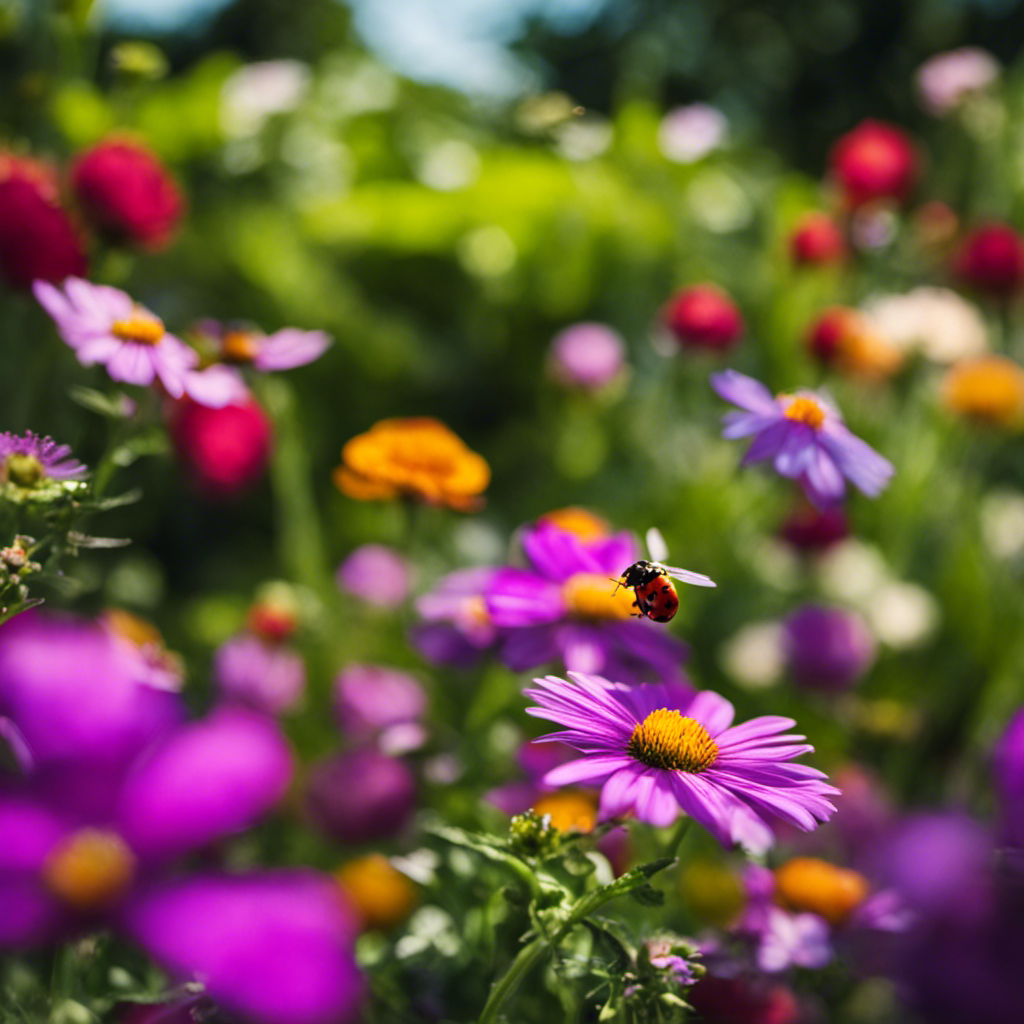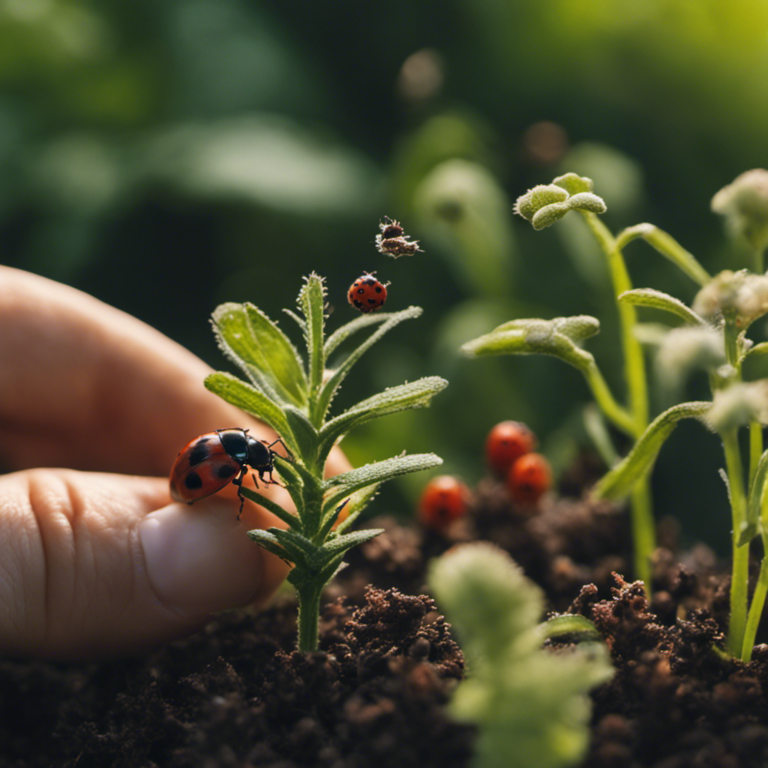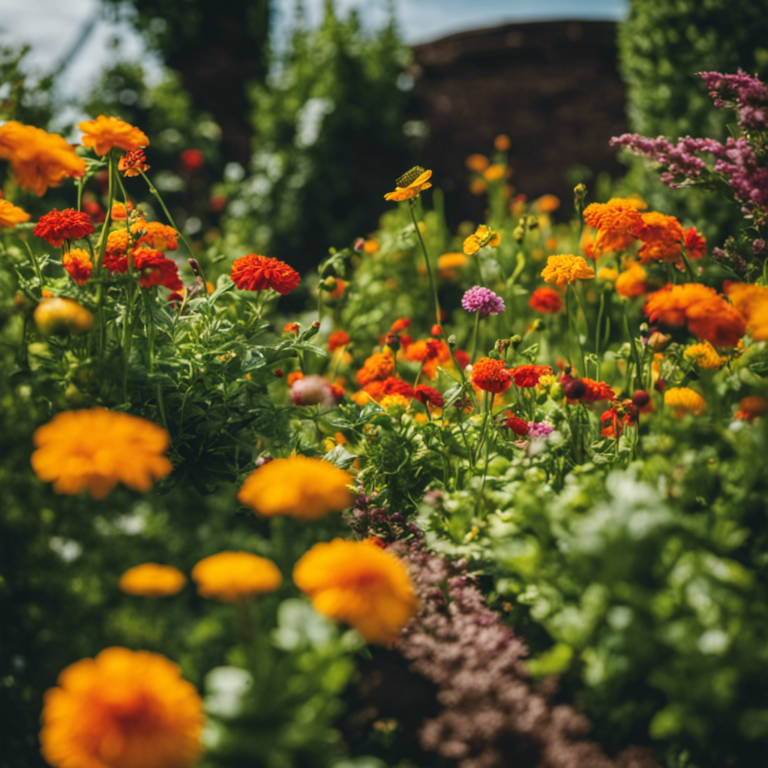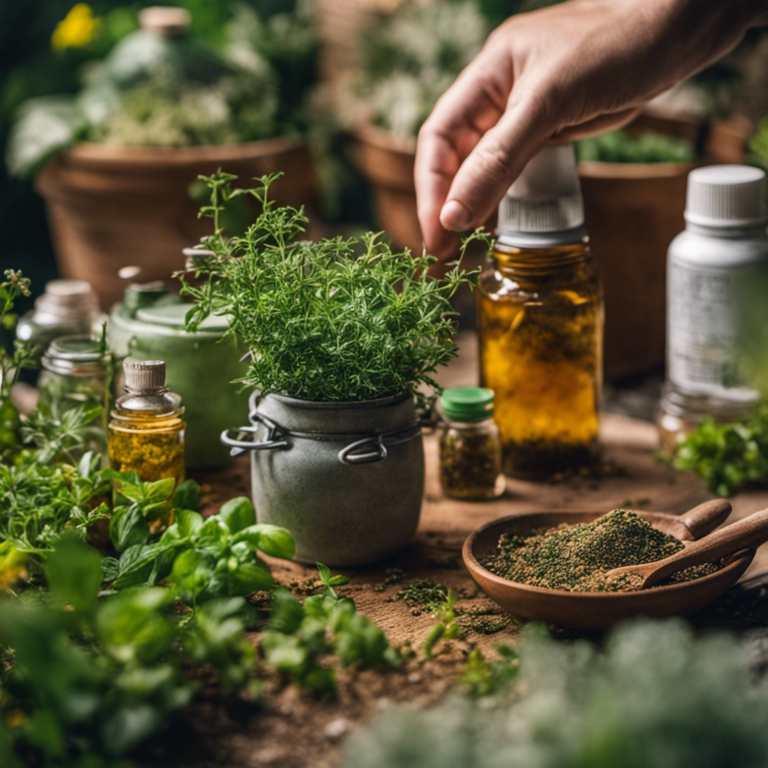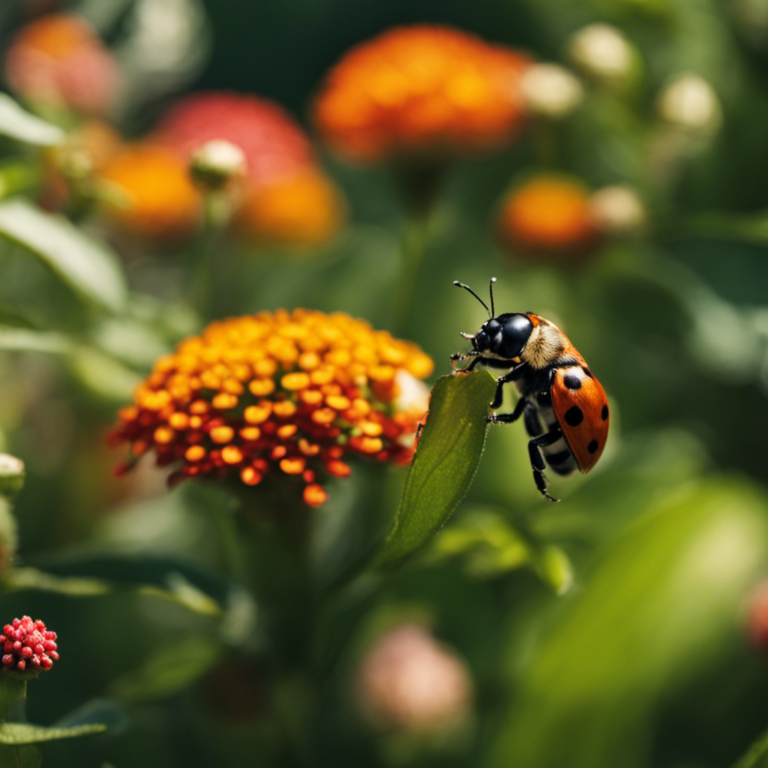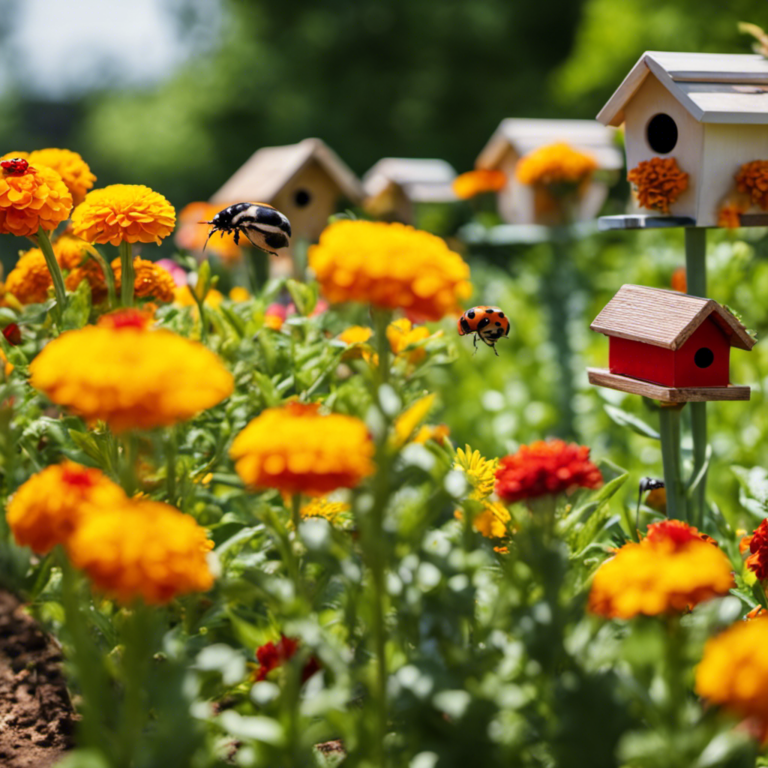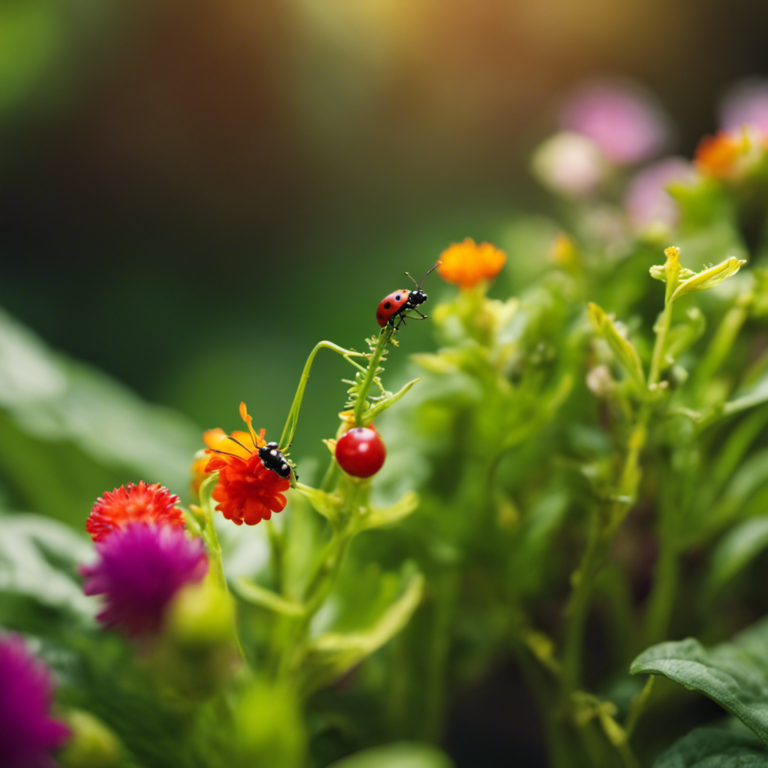Combatting Pests Naturally in Your Garden
Picture this: you step into your garden oasis, only to be met with an unwelcome swarm of pests. But fear not! This article will provide you with the knowledge and tools needed to tackle these pesky invaders using natural methods.
By identifying common garden troublemakers, attracting beneficial insects, and implementing companion planting strategies, you can create a harmonious ecosystem that keeps pests at bay.
Additionally, you’ll learn how to make your own natural pest repellents and practice proper garden maintenance for a thriving, pest-free paradise. Say goodbye to unwanted guests and reclaim your garden with these effective and eco-friendly solutions.
Key Takeaways
How to Naturally Control Pests in Your Garden
Controlling pests in your garden without the use of harmful chemicals is a top priority for many gardeners. Thankfully, there are effective methods available that can help you achieve this goal.
One approach is to attract beneficial insects and practice companion planting. By doing so, you can establish a well-balanced ecosystem that naturally keeps pests in check. Beneficial insects like ladybugs and lacewings prey on common garden pests, while companion planting involves strategically growing certain plants together to deter pests.
In addition to these methods, creating your own homemade pest repellents and properly maintaining your garden can further strengthen its defenses against unwanted intruders. Simple ingredients like garlic, onion, and neem oil can be used to make effective pest repellents that are safe for both your plants and the environment.
By embracing the power of nature, you can create a thriving garden that remains untouched by bothersome pests. So, why not give these natural pest control methods a try and see the difference they can make in your garden?
Identify Common Garden Pests
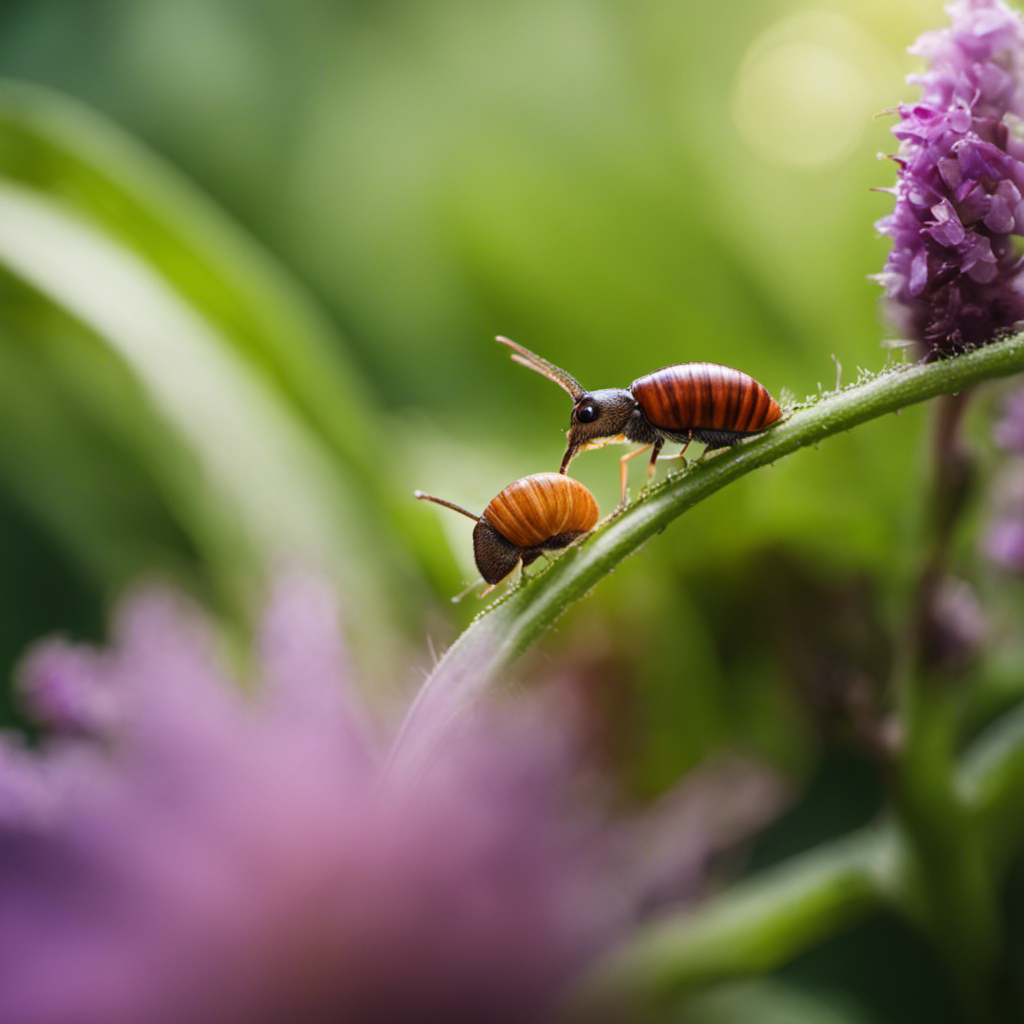
Identifying Common Garden Pests
To identify common garden pests, closely examine your plants for any signs of insect damage or presence. Look for chewed leaves, wilting, or discolored foliage. Some pests may leave behind trails of slime or webs. You may also spot the pests themselves, such as aphids, beetles, or caterpillars.
Once you have identified the pest, it’s important to take action to protect your plants. Instead of using harsh chemicals, consider using natural pest control methods and organic pest management. One effective method is companion planting, where certain plants repel pests or attract beneficial insects that prey on them. Introducing ladybugs or praying mantises can also help control pest populations.
Regularly inspecting your garden and taking preventive measures will keep pests at bay and ensure the health and thriving of your plants.
Attract Beneficial Insects
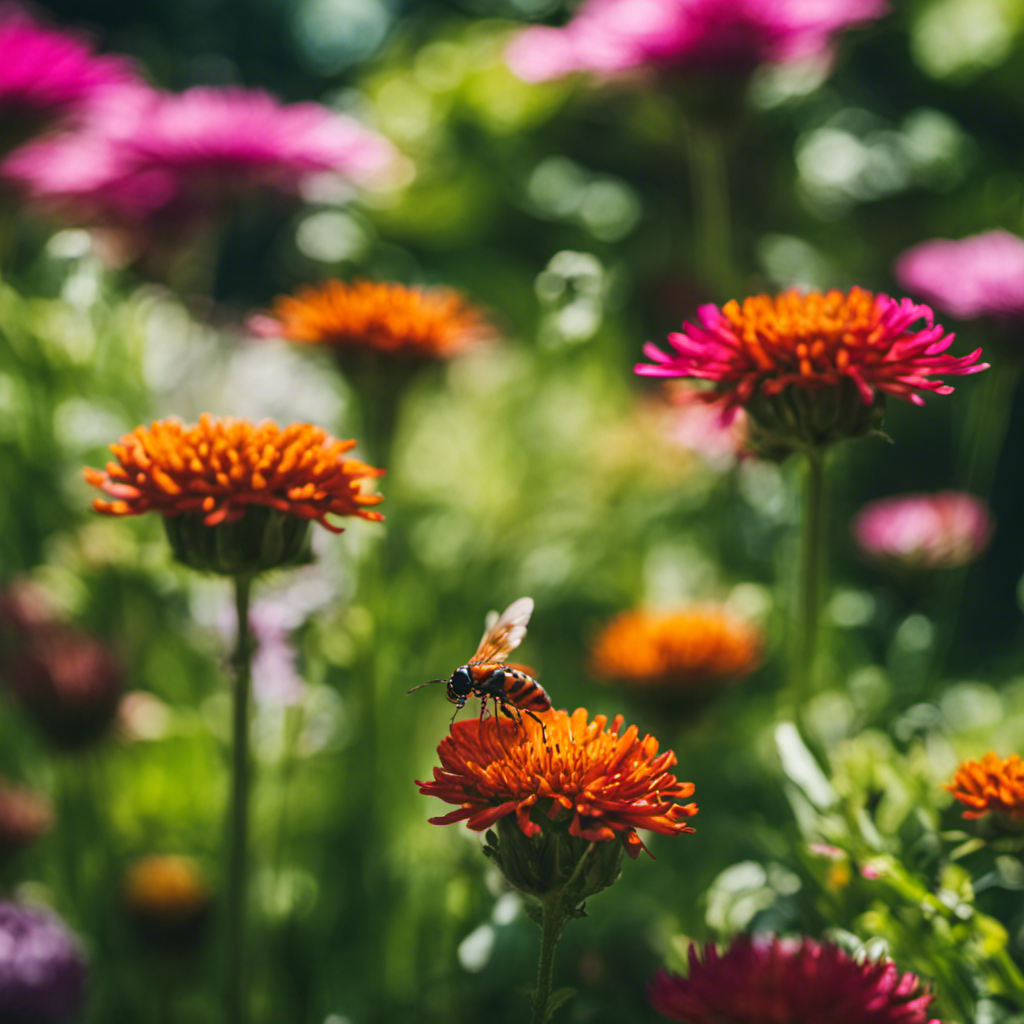
Attracting beneficial insects to your garden can be done by incorporating specific plants that naturally repel pests or attract their predators. Here are four plants that can help you achieve this:
-
Marigolds: These colorful flowers not only add beauty to your garden but also repel unwanted pests like aphids, mosquitoes, and nematodes. Additionally, they attract beneficial insects such as ladybugs and hoverflies.
-
Dill: This herb is a magnet for beneficial insects like wasps and parasitic flies, which prey on common garden pests such as aphids, caterpillars, and spider mites. Planting dill near susceptible plants can provide natural pest control.
-
Sunflowers: These cheerful flowers act as a beacon for bees and butterflies, attracting them to your garden. Bees, in particular, play a crucial role in pollination and increasing the yield of fruits and vegetables.
-
Lavender: Besides being a fragrant addition to your garden, lavender also repels mosquitoes and moths. It attracts important pollinators like bees, butterflies, and other insects that aid in the pollination process.
Implement Companion Planting Strategies
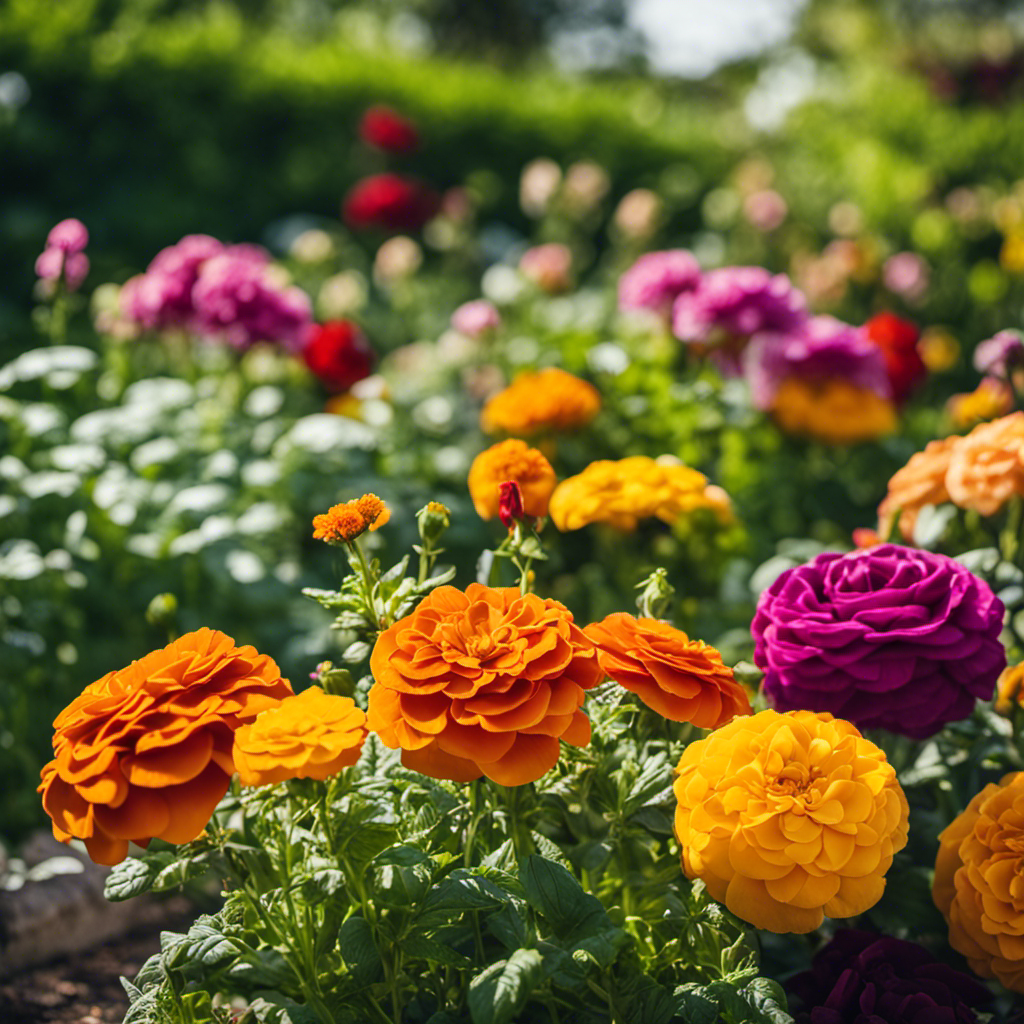
One effective way to naturally control pests in your garden is through companion planting strategies. Companion planting involves growing specific plants together to promote their growth and deter pests. By strategically planting flowers and herbs, you can attract beneficial insects that will prey on garden pests. For instance, planting marigolds can help repel aphids, while lavender attracts bees and butterflies for pollination.
Another helpful technique is crop rotation, which involves changing the location of your crops each season. This helps prevent the buildup of pests and diseases in the soil, as different crops have different nutrient requirements and attract different pests.
By incorporating these companion planting strategies, you can create a healthier garden that’s more resistant to pests.
Here are some examples of companion plants and the beneficial insects they attract for pest control:
- Marigolds: Attract ladybugs, which prey on aphids.
- Lavender: Attracts bees and butterflies, which aid in pollination.
- Nasturtiums: Deter aphids and whiteflies, while attracting caterpillar predators.
- Sunflowers: Attract bees and hoverflies, which feed on nematodes.
- Chrysanthemums: Repel spider mites and Japanese beetles.
Implementing these companion planting strategies can significantly contribute to the overall health and productivity of your garden.
Make Natural Pest Repellents

Make Your Own Natural Pest Repellents
Creating effective pest repellents for your garden is easy and eco-friendly. By using three simple ingredients, you can keep pests at bay without relying on harmful chemicals. Here are four natural pest control methods that you can try:
-
Garlic Spray: Start by crushing a few garlic cloves and mixing them with water. Allow the mixture to sit overnight, then strain it and spray it on your affected plants. The strong odor of garlic acts as a natural deterrent for pests like aphids and beetles.
-
Neem Oil: Mix neem oil with water and add a few drops of dish soap. This mixture can be sprayed on your plants to repel pests such as mites, whiteflies, and caterpillars.
-
Chili Pepper Spray: Blend chili peppers with water, strain the mixture, and add a few drops of dish soap. This spicy concoction is effective in repelling insects like aphids, slugs, and snails.
-
Mint Leaves: Planting mint around your garden can naturally repel pests like ants, mosquitoes, and mice.
Practice Proper Garden Maintenance
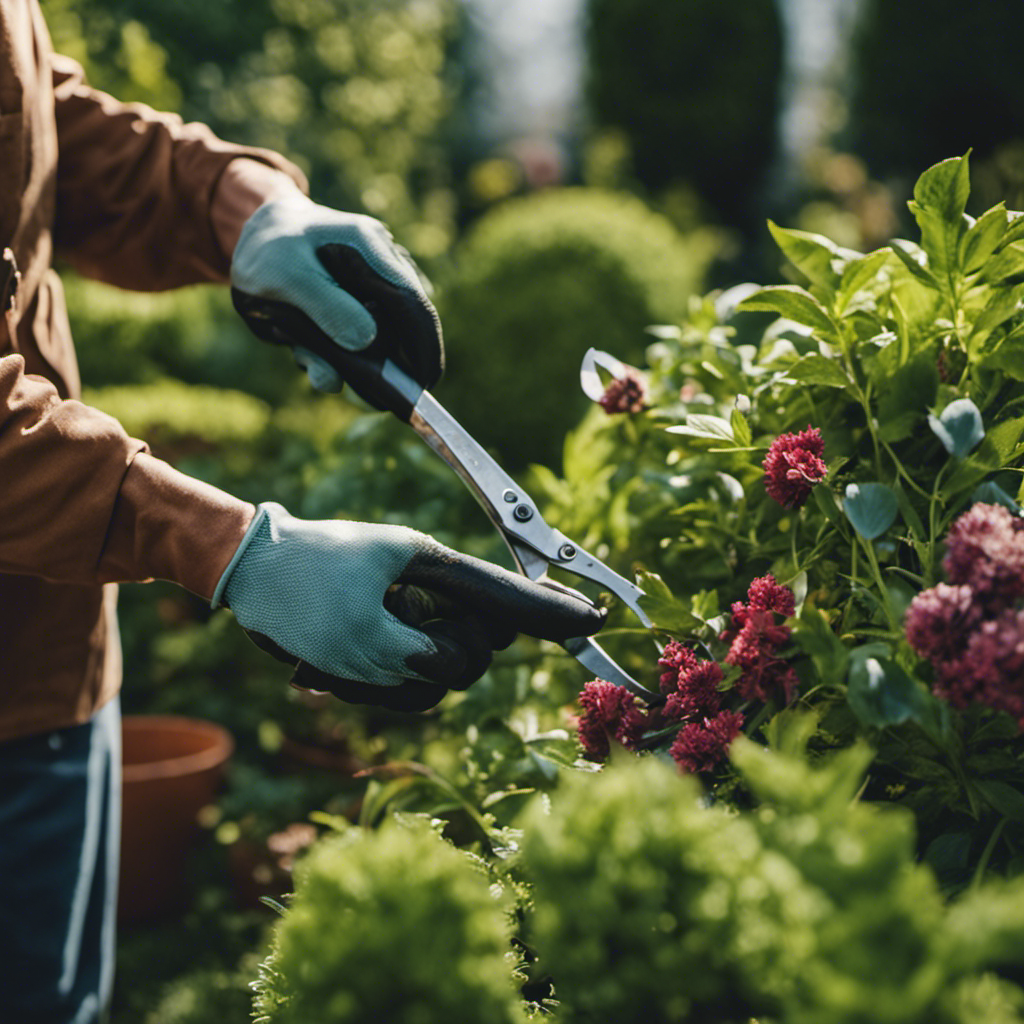
Maintaining a healthy and pest-free garden requires proactive garden maintenance. By taking preventive measures and using organic fertilizers, you can create an environment that’s less appealing to pests and promotes the overall health of your plants.
Regularly inspect your garden for signs of pests or diseases. Catching them early will prevent their spread and minimize damage. Remove any weeds or debris that may harbor pests or provide hiding places.
Pruning your plants regularly not only enhances their shape and appearance but also improves air circulation, reducing the risk of fungal diseases. Proper watering is also crucial. Avoid overwatering, as it can lead to root rot and create a breeding ground for pests.
Organic fertilizers provide nourishment to your plants without introducing harmful chemicals into your garden. These fertilizers promote healthy growth and strengthen plants, making them more resistant to pests and diseases.
Conclusion
Combatting pests in your garden naturally is a priority for many gardeners. Fortunately, there are effective methods that don’t rely on harmful chemicals.
By attracting beneficial insects and practicing companion planting, you can establish a balanced ecosystem that naturally keeps pests under control.
Additionally, creating your own homemade pest repellents and maintaining your garden properly will strengthen its defenses against unwanted intruders.
Embracing the power of nature allows your garden to thrive, untouched by bothersome pests.
